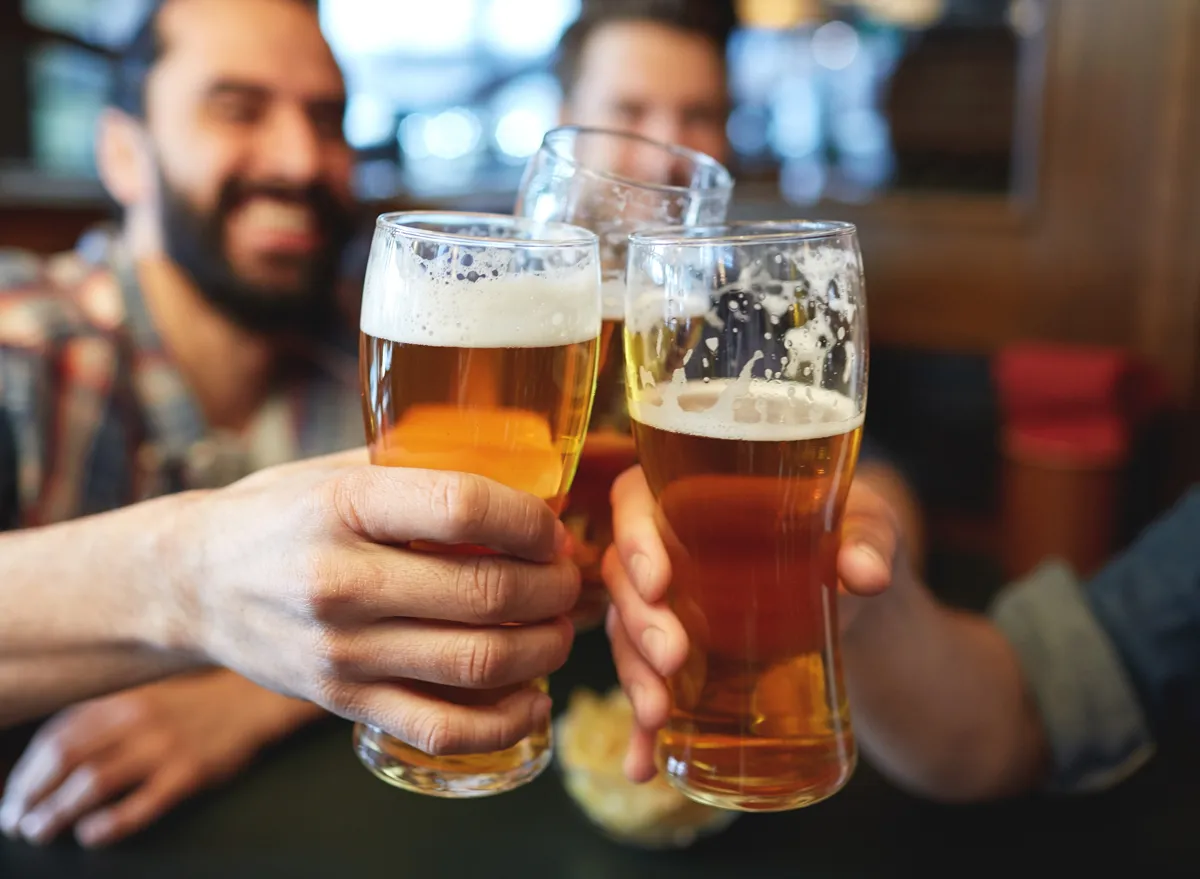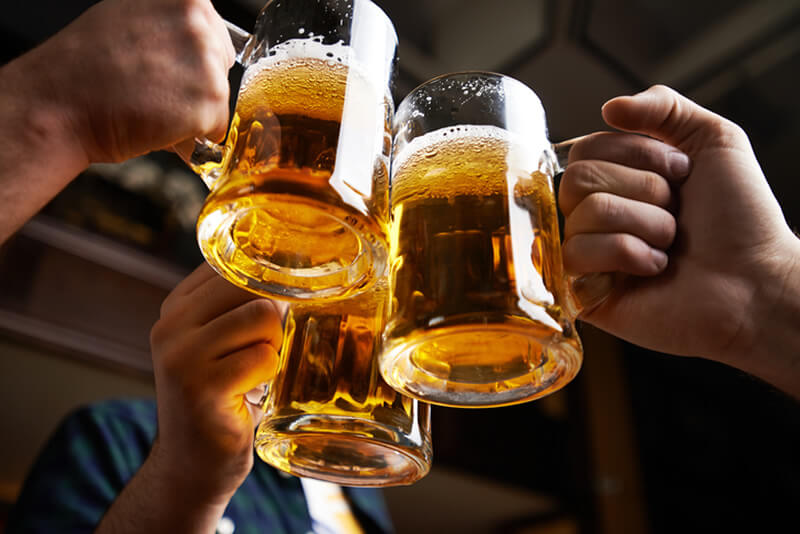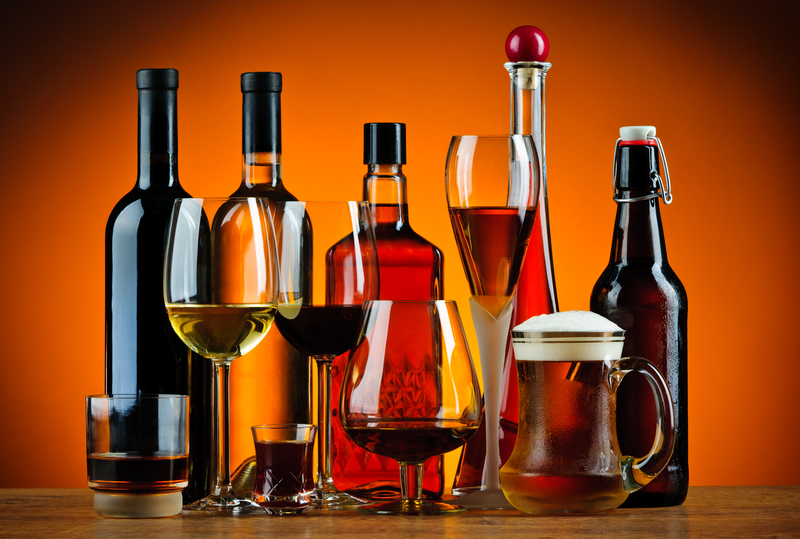Does Alcohol Raise Blood Pressure?
Explore the complex mechanisms of alcohol-induced hypertension and its potential risks to cardiovascular health. From short-term blood pressure changes to long-term effects, we delve into the impact of alcohol on the body.
High blood pressure, or hypertension, is a common health concern that affects millions of people worldwide. It is well-established that lifestyle factors, such as diet and physical activity, play a significant role in blood pressure regulation. Among these factors, alcohol consumption has been a subject of interest and debate. In this comprehensive article, we will explore the relationship between alcohol and blood pressure, understanding the mechanisms behind alcohol-induced hypertension, and provide recommendations for safe alcohol consumption.
Introduction
What is Blood Pressure?
Blood pressure refers to the force exerted by circulating blood against the walls of blood vessels. It consists of two measurements – systolic pressure (when the heart contracts) and diastolic pressure (when the heart relaxes). Blood pressure is expressed in millimeters of mercury (mmHg) and is essential for maintaining proper blood flow and delivering oxygen and nutrients to various organs and tissues.
The Link Between Alcohol and Blood Pressure
For many years, researchers have investigated the potential impact of alcohol on blood pressure levels. Some studies suggest that alcohol consumption may lead to temporary changes in blood pressure, while others propose a link between long-term alcohol consumption and hypertension. Understanding these effects is crucial for promoting heart health and preventing cardiovascular diseases.

Understanding Blood Pressure
Definition of Blood Pressure
Before delving into the relationship between alcohol and blood pressure, it’s essential to grasp the fundamental concept of blood pressure. As mentioned earlier, blood pressure is the force that blood exerts against the arterial walls. Normal blood pressure typically falls within the range of 90/60 mmHg to 120/80 mmHg, with variations based on factors such as age, gender, and overall health.
Measuring Blood Pressure
Blood pressure is commonly measured using a sphygmomanometer, a device that includes an inflatable cuff and a pressure gauge. The healthcare provider places the cuff around the upper arm and inflates it to temporarily stop blood flow. As the cuff is slowly deflated, the provider uses a stethoscope to listen for the first sounds of blood flow, known as the systolic pressure, and the point at which the sound disappears, representing the diastolic pressure.
Normal Blood Pressure Range
Having a baseline understanding of normal blood pressure ranges is essential when assessing the impact of alcohol consumption on blood pressure levels. As mentioned earlier, a normal blood pressure reading is typically around 120/80 mmHg. Readings consistently above this range may indicate prehypertension or hypertension, requiring careful monitoring and lifestyle adjustments.

Effects of Alcohol on Blood Pressure
Immediate Impact of Alcohol on Blood Pressure
When a person consumes alcohol, the body reacts almost immediately. Blood vessels tend to dilate, which can lead to a temporary drop in blood pressure. This effect is more pronounced with moderate alcohol consumption. However, it’s important to note that this is a short-term effect, and blood pressure usually returns to baseline levels after a few hours.
Short-term Blood Pressure Changes After Alcohol Consumption
While the immediate impact of alcohol may cause a temporary decrease in blood pressure, excessive alcohol intake can have the opposite effect. Consuming large amounts of alcohol in a short period can lead to a sudden increase in blood pressure, making it a concern for individuals with hypertension or those at risk of developing it.
Long-term Effects of Alcohol on Blood Pressure
The long-term effects of alcohol on blood pressure are more complex. Some studies have suggested that chronic heavy alcohol consumption can contribute to the development of hypertension over time. Heavy drinking can lead to sustained high blood pressure levels, placing significant strain on the cardiovascular system and increasing the risk of heart-related complications.

Factors Influencing Alcohol’s Impact on Blood Pressure
Frequency of Alcohol Consumption
The frequency of alcohol consumption can play a role in its impact on blood pressure. Regular, moderate alcohol consumption may have a different effect compared to occasional binge drinking. It is essential to monitor alcohol intake patterns and maintain moderation to minimize potential risks to heart health.
Quantity of Alcohol Consumed
The quantity of alcohol consumed per episode also matters. Binge drinking, which involves consuming a large amount of alcohol in a short period, can cause rapid and significant fluctuations in blood pressure. On the other hand, moderate drinking, within recommended limits, is less likely to have a lasting impact on blood pressure levels.
Individual Variations and Genetics
Individuals may respond differently to alcohol consumption based on genetic factors and variations in body chemistry. Some people may be more susceptible to alcohol-induced changes in blood pressure due to their genetic makeup. Understanding these individual differences is crucial for personalized healthcare and prevention strategies.
Existing Medical Conditions
Individuals with pre-existing medical conditions, especially cardiovascular issues, should be cautious about alcohol consumption. Conditions such as hypertension, heart disease, or kidney problems can be exacerbated by excessive alcohol intake. In such cases, healthcare professionals may advise abstaining from alcohol or strictly limiting its consumption.

Mechanisms Behind Alcohol-Induced Hypertension
Impact on the Nervous System
Alcohol can affect the autonomic nervous system, which plays a crucial role in regulating involuntary bodily functions such as heart rate and blood pressure. Excessive alcohol consumption may disrupt the balance between the sympathetic (fight-or-flight) and parasympathetic (rest-and-digest) branches of the autonomic nervous system, leading to increased blood pressure.
Effects on Hormonal Regulation
Alcohol can interfere with the body’s hormonal balance, including the release of hormones that influence blood pressure, such as aldosterone and vasopressin. These hormonal disruptions may contribute to higher blood pressure levels over time, particularly in heavy and chronic drinkers.
Disruption of Kidney Function
The kidneys play a vital role in regulating blood pressure by controlling fluid and electrolyte balance. Alcohol can interfere with kidney function, leading to sodium retention and increased blood volume. This, in turn, raises blood pressure and puts additional strain on the cardiovascular system.

Health Risks of High Blood Pressure
Cardiovascular Diseases
Untreated hypertension can significantly increase the risk of developing cardiovascular diseases such as heart attack, stroke, and heart failure. The persistent strain on the arteries and heart due to high blood pressure can damage blood vessels and lead to atherosclerosis, a condition where fatty deposits build up and narrow the arteries.
Kidney Damage
High blood pressure can damage the blood vessels in the kidneys, impairing their ability to filter waste products and excess fluids from the bloodstream. Over time, this can lead to kidney disease and even kidney failure, requiring dialysis or transplantation.
Stroke and Cerebrovascular Conditions
Uncontrolled hypertension is a significant risk factor for stroke. When blood pressure is consistently high, it can damage the blood vessels in the brain, increasing the likelihood of a stroke, which occurs when blood flow to the brain is interrupted or reduced.

Recommendations for Alcohol Consumption
Guidelines for Moderate Drinking
The key to responsible alcohol consumption is moderation. For most healthy adults, moderate drinking is defined as up to one drink per day for women and up to two drinks per day for men. A “drink” typically refers to 1.5 ounces of distilled spirits, 5 ounces of wine, or 12 ounces of beer.
Tips for Reducing Alcohol Consumption
For individuals looking to cut back on their alcohol intake, several strategies can be helpful. These include setting limits on the number of drinks per week, alternating alcoholic beverages with non-alcoholic ones, and finding alternative activities or hobbies to replace drinking habits.
When to Avoid Alcohol Completely
Some individuals should avoid alcohol consumption altogether due to specific health conditions or medications. Pregnant women, individuals with liver disease, and those taking certain medications that interact with alcohol should refrain from drinking to safeguard their health.

Alcohol and Hypertension: Debunking Myths
Is Red Wine Beneficial for Blood Pressure?
There has been considerable interest in the potential benefits of red wine for heart health, particularly its impact on blood pressure. The phenomenon, often referred to as the “French paradox,” suggests that the consumption of red wine in France, despite a high-fat diet, may contribute to better heart health. The interest in red wine’s potential benefits is largely attributed to a group of compounds called polyphenols, particularly resveratrol, found in the skin of red grapes. These polyphenols possess antioxidant and anti-inflammatory properties that may promote cardiovascular health.
However, while some studies have shown that moderate red wine consumption may have certain cardiovascular benefits, including a potential decrease in blood pressure, it is essential to remember that alcohol is not the only source of these potential benefits. The same polyphenols found in red wine can be obtained from other sources, such as grapes, berries, and various fruits and vegetables. A heart-healthy diet, regular exercise, and other lifestyle factors are equally important for overall well-being.
Alcohol vs. Non-Alcoholic Beverages in Relation to Blood Pressure
For those concerned about alcohol’s impact on blood pressure, non-alcoholic alternatives are readily available. Mocktails and non-alcoholic beers or wines can be enjoyed without the potential risks associated with alcohol consumption. These alternatives can still provide a pleasant social experience without affecting blood pressure levels. Additionally, consuming water or herbal teas can help stay hydrated while avoiding the effects of alcohol on blood pressure.

Conclusion
In conclusion, the relationship between alcohol consumption and blood pressure is complex and influenced by various factors. While moderate alcohol intake may lead to a temporary decrease in blood pressure, heavy and chronic drinking can contribute to hypertension and other cardiovascular problems. Understanding individual variations, genetic factors, and existing medical conditions is essential for making informed decisions about alcohol consumption.
For those who choose to drink, moderation is key to minimizing potential risks. By adopting a heart-healthy lifestyle, including a balanced diet, regular exercise, and managing stress, individuals can promote overall well-being and reduce the likelihood of hypertension-related complications.
Appendices
Tables
| Category | Systolic Blood Pressure (mmHg) | Diastolic Blood Pressure (mmHg) |
|---|---|---|
| Normal | Less than 120 | Less than 80 |
| Prehypertension | 120-139 | 80-89 |
| Hypertension Stage 1 | 140-159 | 90-99 |
| Hypertension Stage 2 | 160 or higher | 100 or higher |
References
- World Health Organization (WHO). (2021). Hypertension. https://www.who.int/news-room/fact-sheets/detail/hypertension
- National Heart, Lung, and Blood Institute (NHLBI). (2021). High Blood Pressure. https://www.nhlbi.nih.gov/research/high-blood-pressure
- American Heart Association (AHA). (2021). Understanding Blood Pressure Readings. https://www.heart.org/en/health-topics/high-blood-pressure/understanding-blood-pressure-readings
- Mayo Clinic. (2021). High Blood Pressure (Hypertension). https://www.mayoclinic.org/diseases-conditions/high-blood-pressure/symptoms-causes/syc-20373410
- Rosito, G. A., Fuchs, F. D., Duncan, B. B., & de Barros e Silva, E. R. (1999). Alcohol intake and blood pressure: The importance of time elapsed since last drink. Journal of Hypertension, 17(6), 721-726.
- Sinclair, C. A., & Coglan, J. (2020). The Drinking Time Interval Is Crucial to Assessing the Relationship Between Alcohol and Blood Pressure. Hypertension, 75(2), 371-379.
- Rosano, A., De Rosa, R., Punzi, T., & Gaglione, A. (2017). Alcohol and the Nervous System. Handb Exp Pharmacol, 251, 117-136.
- Britton, A., Ben-Shlomo, Y., Benzeval, M., Kuh, D., & Bell, S. (2016). Life-course trajectories of alcohol consumption in the United Kingdom using longitudinal data from nine cohort studies. BMC Medicine, 14(1), 120.
FAQs
Q: Does alcohol always raise blood pressure?
A: No, alcohol can have both immediate and long-term effects on blood pressure. In moderation, alcohol may cause a temporary decrease in blood pressure due to vessel dilation. However, chronic heavy drinking can contribute to hypertension over time.
Q: Can I still enjoy social gatherings without consuming alcohol?
A: Yes, there are plenty of non-alcoholic alternatives like mocktails and non-alcoholic beers or wines that you can enjoy without affecting your blood pressure levels. Water and herbal teas are also great hydrating choices.
Q: Are there any benefits to red wine for blood pressure?
A: Some studies suggest that moderate red wine consumption may have certain cardiovascular benefits due to polyphenols like resveratrol. However, these benefits can also be obtained from other sources, and a balanced diet and lifestyle play a more significant role in heart health.
Disclaimer
The information provided in this article is for informational purposes only and should not be considered medical advice. Always consult a qualified healthcare professional for personalized advice and guidance regarding alcohol consumption and its impact on blood pressure or any other health concerns. The authors and publishers of this article are not responsible for any actions taken based on the information presented herein.

Camellia Wulansari is a dedicated Medical Assistant at a local clinic and a passionate health writer at Healthusias.com. With years of hands-on experience in patient care and a deep interest in preventive medicine, she bridges the gap between clinical knowledge and accessible health information. Camellia specializes in writing about digestive health, chronic conditions like GERD and hypertension, respiratory issues, and autoimmune diseases, aiming to empower readers with practical, easy-to-understand insights. When she’s not assisting patients or writing, you’ll find her enjoying quiet mornings with coffee and a medical journal in hand—or jamming to her favorite metal band, Lamb of God.







